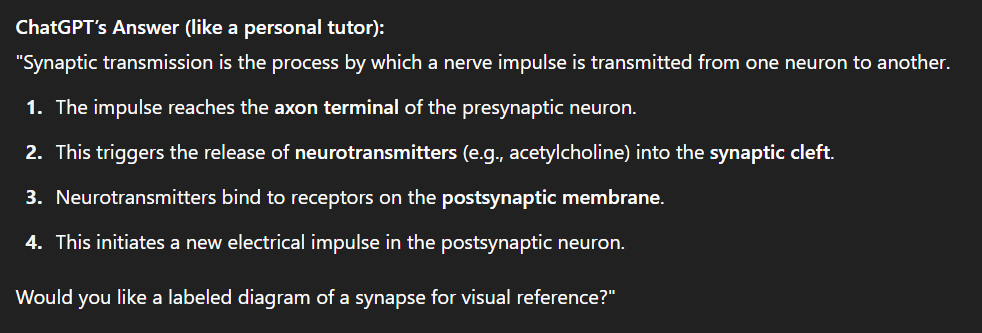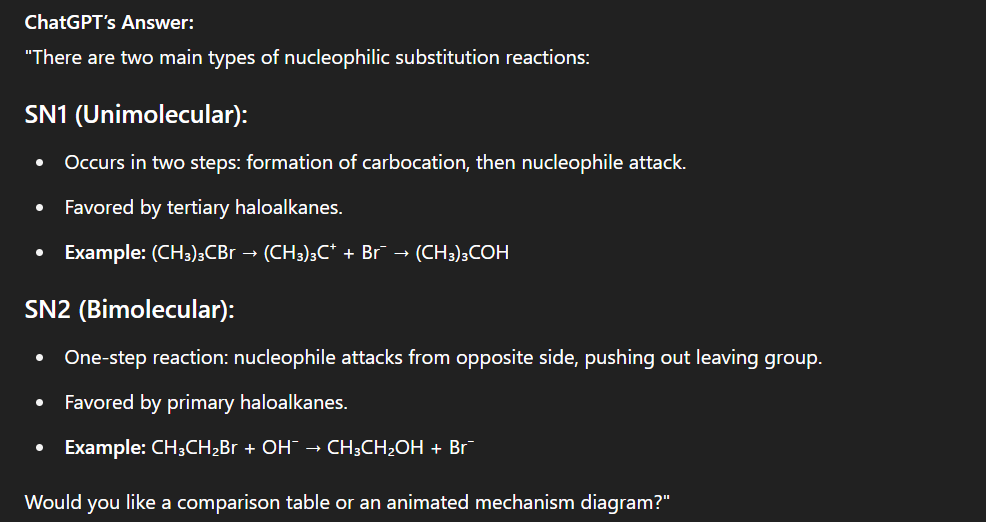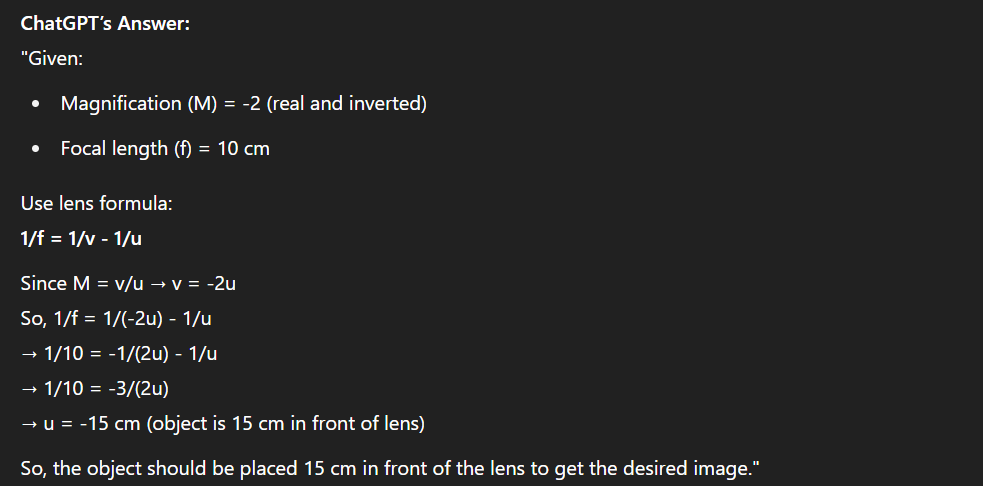How to Study For AIIMS MBBS with ChatGPT ?
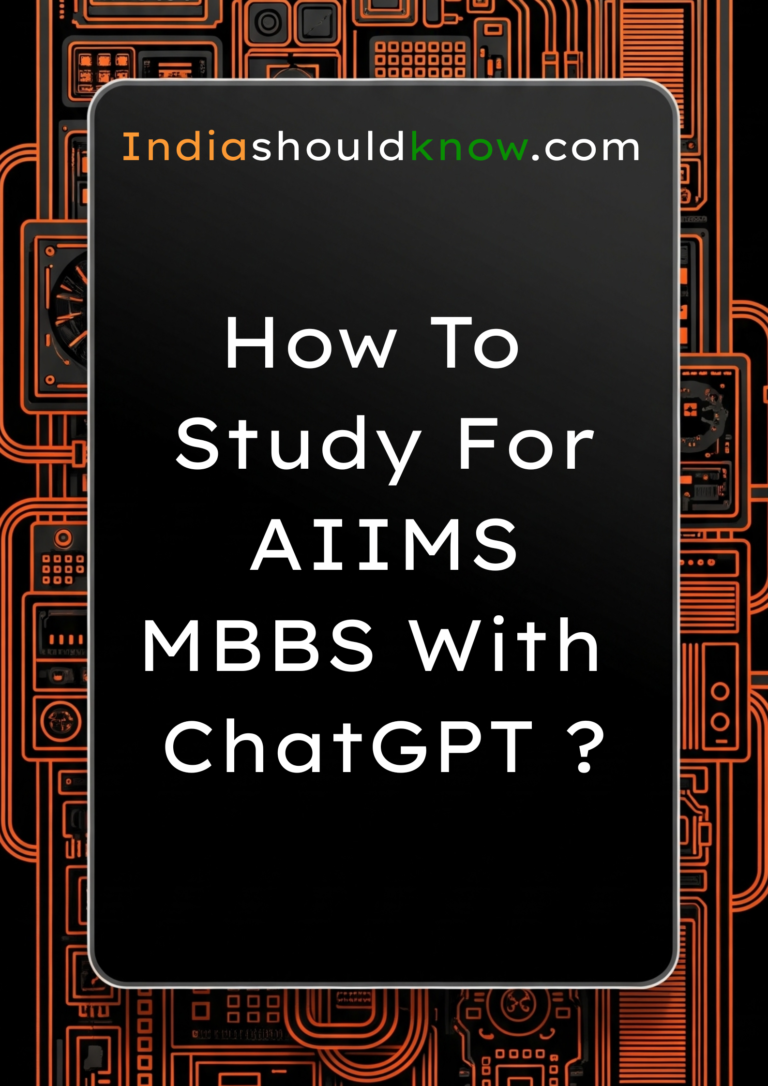
Index
- Introduction – AIIMS MBBS Preparation & ChatGPT.
- How To Use ChatGPT Input Methods For AIIMS MBBS.
- Examples About Using ChatGPT For AIIMS MBBS Subjects.
- Practice Using AI & Prompting With Google AI Chatbot.
- Conclusion
- FAQs.
- Related Articles.
Preparing For AIIMS MBBS with Your AI-Powered Study Partner: ChatGPT
Preparing for the AIIMS MBBS entrance exam (now merged with NEET-UG) is one of the most challenging academic journeys for medical aspirants in India. With an intense focus on Biology, Physics, Chemistry, and General Knowledge, mastering the syllabus requires not just hard work but smart strategy and reliable guidance.
This is where ChatGPT AI becomes a game-changer. When combined with NCERT books, coaching notes, and practice tests, ChatGPT transforms into a 360-degree digital study companion—a tutor, explainer, quiz generator, and revision assistant all in one. Whether you’re solving tricky organic chemistry problems or trying to memorize complex biological systems, ChatGPT can break it all down for you—anytime, anywhere.
Since ChatGPT was released in November 2022, I use to AI tools like Google Gemini daily for help with many tasks. This has been huge for me, letting me quickly learn new skills and adapt. It’s how I went from sales to creating this entire website. AI really helps me stay ahead in the digital world.
How Can ChatGPT Help with AIIMS MBBS Preparation ?
- Get clear answers and explanations for questions in Biology, Physics, Chemistry, or any other AIIMS MBBS subject.
Get help finding helpful videos and books online to deepen your AIIMS MBBS understanding.
Create sample papers and practice material tailored to AIIMS MBBS to build your confidence.
- Expertly research AIIMS MBBS project material, find images, statistics, and more.
And So Much More! ChatGPT is here to support all your AIIMS MBBS preparation needs.
Ready to Learn how to study anything in your AIIMS MBBS syllabus with the help of OpenAI's powerful tool ChatGPT ?
All You Need is
- Your notes or your text book
Before you start, you need access to ChatGPT. You can either download the app or use it on your browser:
On mobile (iOS or Android):
Download ChatGPT from the App Store
Download ChatGPT from Google PlayOn browser:
Visit ChatGPT on web
Create a free account or log in.
- Read this article to learn how
That’s All you need to make yourself a tutor ready to answer all your questions, at anytime for FREE !!!
And remember to share this article with anyone you think may need it.
How To Use ChatGPT Input Methods For AIIMS MBBS
1. Text Prompts

Use simple, precise questions from your syllabus or ask for explanations, MCQs, or study plans.
Example: “Explain the mechanism of muscle contraction with a diagram.”
2. Voice Input
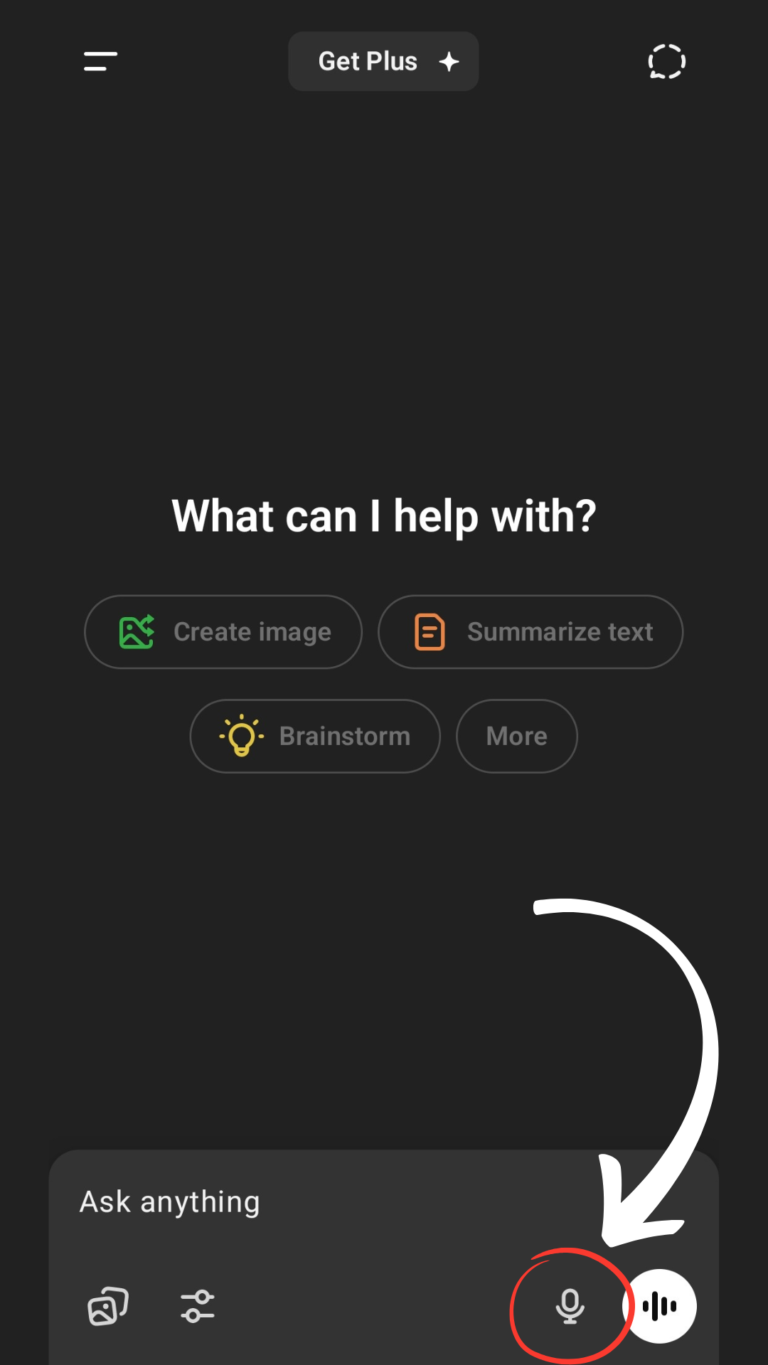
Ask questions aloud during revision or while commuting. ChatGPT replies conversationally—perfect for passive learning or last-minute refreshers.
Example: “What’s the difference between DNA and RNA?”
3. Image Input
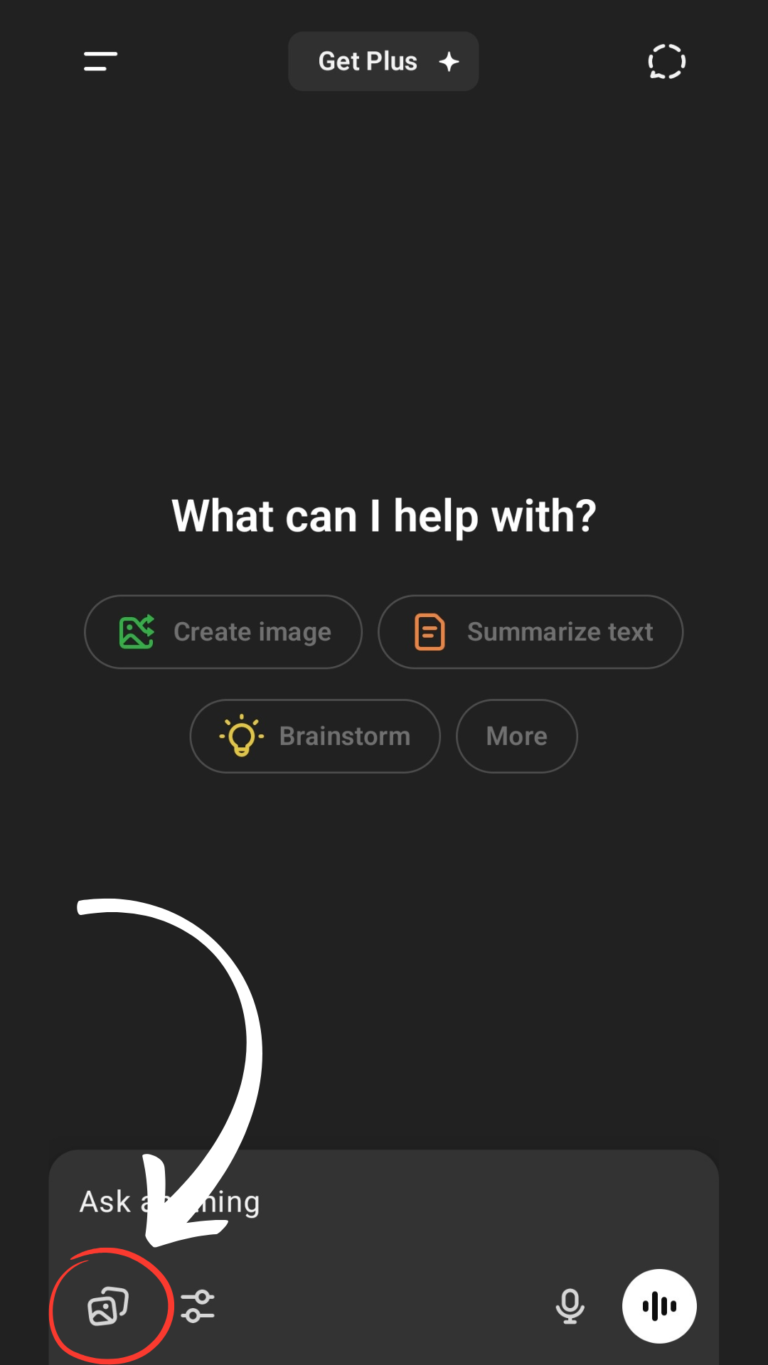
Upload textbook pages, handwritten notes, or diagrams for step-by-step explanation. Very useful for interpreting biological charts, histology images, or chemical reactions.
Example: Upload a photo of a microscope slide and ask, “What tissue is this and what are its characteristics?”
Specific Examples For Using ChatGPT From AIIMS MBBS Syllabus to help you with preparation.
Example 1: AIIMS MBBS Biology – Human Physiology
Understanding synaptic transmission in the human nervous system.
Your ChatGPT Text Prompt
“Explain the process of synaptic transmission in the human nervous system step by step.”
How ChatGPT Will Answer (Like a Personal Tutor):
ChatGPT currently supports 20 Indian languages. Some are - Hindi, Bengali, Gujarati, Kannada, Malayalam, Marathi, Tamil, Telugu, and Urdu.
Click to enlarge.
Example 2: AIIMS MBBS Chemistry – Organic Chemistry
Understanding a biochemical mechanism and explaining the steps involved.
Your ChatGPT Text Prompt
“What is the mechanism of the nucleophilic substitution in haloalkanes ? Explain SN1 and SN2 reactions”
How ChatGPT Will Answer (Like a Personal Tutor):
ChatGPT currently supports 20 Indian languages. Some are - Hindi, Bengali, Gujarati, Kannada, Malayalam, Marathi, Tamil, Telugu, and Urdu.
Click to enlarge.
Example 3:AIIMS MBBS Physics – Optics
Calculating a problem in physics, step by step
Your ChatGPT Text Prompt
Upload image of the problem.
“A convec lens forms a real, inverted image twice the size of the object. Find the obhect distance if the focal length is 10cm.”
How ChatGPT Will Answer (Like a Personal Tutor):
ChatGPT currently supports 20 Indian languages. Some are - Hindi, Bengali, Gujarati, Kannada, Malayalam, Marathi, Tamil, Telugu, and Urdu.
Click to enlarge.
Practice and Perfect Your Prompts with Our AI Tutor (Powered By Gemini)
How It Works –
- Choose Your Course: Select the subject you want to practice.
Get Your Question: Our AI will ask you a question from the official syllabus.
Write Your Prompt: Try to get the answer by writing the best prompt you can.
Receive Instant Feedback: The AI will provide the correct answer and review your prompt, giving you tips to make it better.
AI Study Assistant
Your AI-Powered Path to AIIMS MBBS Excellence.
Preparing for the AIIMS MBBS entrance (now via NEET) can be overwhelming—but with ChatGPT, you get an always-available, deeply knowledgeable AI tutor who can explain, quiz, simplify, and guide you through every chapter.
By combining ChatGPT with NCERT textbooks, coaching materials, and practice papers, you create a complete, intelligent, and personalized study system. Whether it’s clarifying a tough physiology concept or checking a chemical mechanism, AI can help you study smarter, stay consistent, and learn deeply.
Your dream of becoming a doctor deserves every smart tool at your disposal—and with ChatGPT, you’ve got one of the best.
Written By
Prateek Singh.
Last Updated – August, 2025
About The Author
Prateek Singh believes the best way to learn is to get your hands dirty. He went from talking to customers in sales to building the online platforms they use. IndiaShouldKnow.com is his way of sharing that practical, hands-on knowledge with you.
FAQs About AI Use.
Can I trust every answer an AI tool gives me for my studies?
A: No, you should not trust every answer completely. Think of an AI as a super-smart assistant that has read most of the internet—but not every book in the library is accurate.
AI can sometimes make mistakes, misunderstand your question, or use outdated information.
It can even “hallucinate,” which means it confidently makes up an answer that sounds real but is completely false.
Rule of Thumb: Use AI answers as a great starting point, but never as the final, absolute truth. Always double-check important facts.
How can I verify the information I get from an AI for my academic work?
A: Verifying information is a crucial skill. It’s like being a detective for facts. Here are four simple steps:
Check Your Course Material: Is the AI’s answer consistent with what your textbook, lecture notes, or professor says? This is your most reliable source.
Look for Reputable Sources: Ask the AI for its sources or search for the information online. Look for links from universities (.edu), government sites (.gov), respected news organizations, or published academic journals.
Cross-Reference: Ask a different AI the same question, or type your question into a standard search engine like Google. If multiple reliable sources give the same answer, it’s more likely to be correct.
Use Common Sense: If an answer seems too perfect, too strange, or too good to be true, be extra skeptical and investigate it further.
What is the difference between using AI for research and using it to plagiarize?
A: This is a very important difference. It’s all about who is doing the thinking.
Using AI for Research (Good ✅):
Brainstorming topics for a paper.
Asking for a simple explanation of a complex theory.
Finding keywords to use in your library search.
Getting feedback on your grammar and sentence structure.
You are using AI as a tool to help you think and write better.
Using AI to Plagiarize (Bad ❌):
Copying and pasting an AI-generated answer directly into your assignment.
Asking the AI to write an entire essay or paragraph for you.
Slightly rephrasing an AI’s answer and submitting it as your own original thought.
You are letting the AI do the thinking and work for you.
How can I use AI ethically to support my learning without violating my school's academic honesty policy?
A: Using AI ethically means using it to learn, not to cheat. Here’s how:
Know the Rules: First and foremost, read your school’s or professor’s policy on using AI tools. This is the most important step.
Be the Author: The final work you submit must be yours. Your ideas, your structure, and your arguments. Use AI as a guide, not the writer.
Do the Heavy Lifting: Use AI to understand a topic, but then close the chat and write your summary or solve the problem yourself to make sure you have actually learned it.
Be Transparent: If you used an AI in a significant way (like for brainstorming), ask your professor if you should mention it. Honesty is always the best policy.
Can an AI's answer be biased? How can I detect this in its responses?
A: Yes, an AI’s answer can definitely be biased. Since AI learns from the vast amount of text on the internet written by humans, it can pick up and repeat human biases.
Here’s how to spot potential bias:
Look for Opinions: Does the answer present a strong opinion as a fact?
Check for One-Sidedness: On a topic with multiple viewpoints (like politics or economics), does the AI only show one side of the argument?
Watch for Stereotypes: Does the answer use generalizations about groups of people based on their race, gender, nationality, or other characteristics?
To avoid being misled by bias, always try to get information from multiple, varied sources.
Is it safe to upload my personal notes, research papers, or assignments to an AI tool?
A: It is best to be very careful. You should not consider your conversations with most public AI tools to be private.
Many AI companies use your conversations to train their systems, which means employees or contractors might read them.
There is always a risk of data breaches or leaks.
A Simple Safety Rule: Do not upload or paste any sensitive information that you would not want a stranger to see. This includes:
Personal identification details.
Confidential research or unpublished papers.
Your school assignments before you submit them.
Any financial or private data.
Related Articles
Sign Up for Our Newsletter To Learn More About the Latest In AI And Learn How To Use It.
Unlock your learning potential and stay ahead in the age of AI! Join the IndiaShouldKnow.com newsletter to discover how to seamlessly integrate AI into your studies for school, entrance exams, college courses, for your Career and Life. Plus, get the latest insights on cutting-edge AI tools that can empower your career and enrich your life. Subscribe now for monthly updates.

